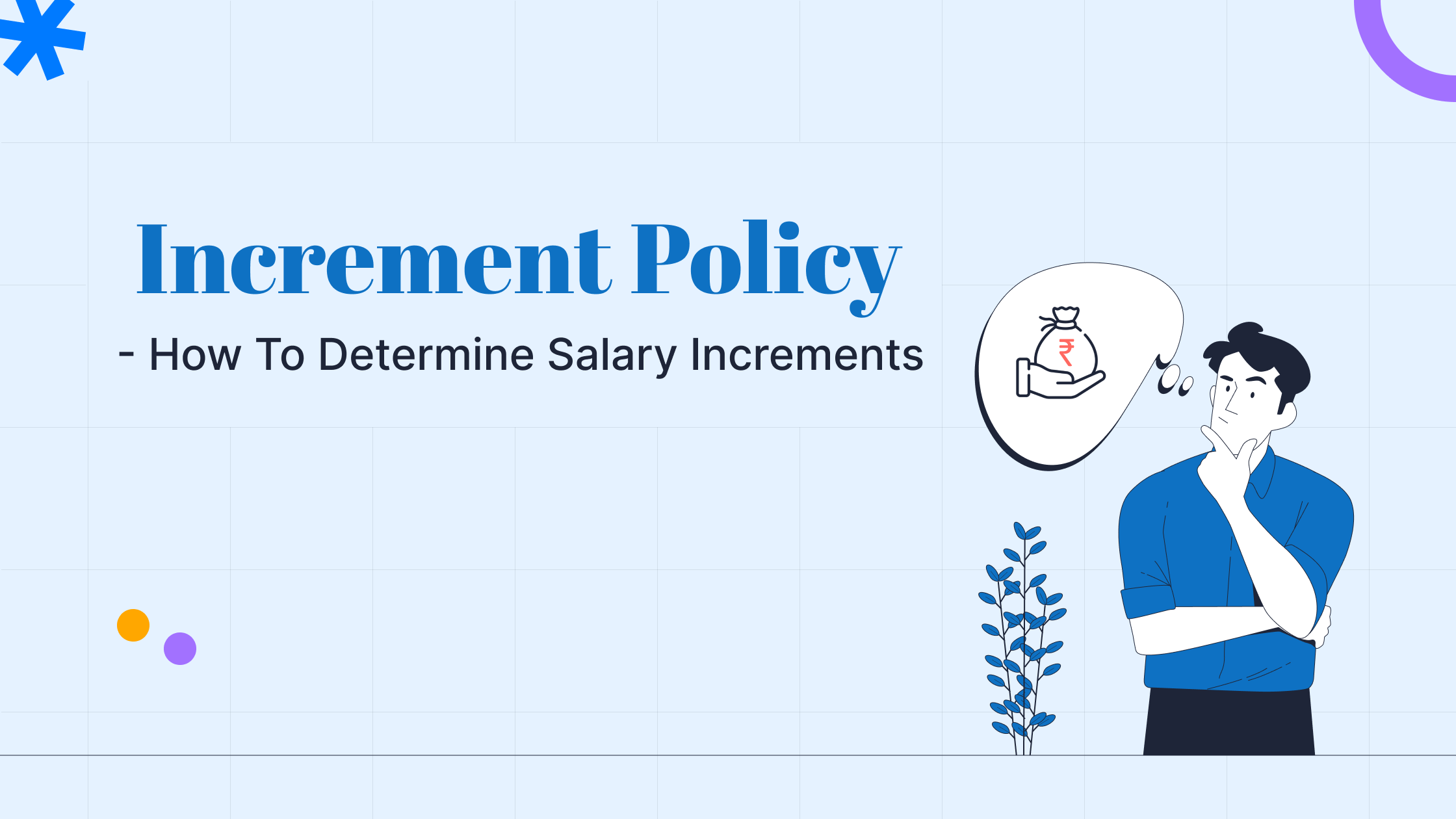

An employee’s good performance should always be rewarded and there are so many ways to reward your employees other than payroll like bonuses, surprise trips, gift cards, and more. However, salary increment is the most exciting reward one can offer to its employees. Salary Increment is also a way of balancing employees’ expectations through their performance. Periodic salary increments typically also depend on a number of circumstances beyond the employee, such as market conditions, organizational policy, the overall performance of the company, etc.
However, before offering salary increments to your employees you need to have a predefined increment policy for a transparent and smoother increment. While developing an increment policy for your employees, there might be chances of some common errors. If you want to develop a policy that is error-free, this blog is the right place for you. This blog will discuss everything from definition to its basis.
Salary Increments are often expressed as a percentage of an employee’s base salary. Mostly, it is the percentage of the employee’s annual salary. Increments are used by employers to increase employee salaries and to grant incentives.
Every company, be it small or big, has an increment policy that tells you the basis on which salary raises are done. These policies are often transparent in order to avoid any confusion and to incorporate a trustable culture in the organization.
Employees receive salaries for performing the roles and responsibilities related to their positions. The exact salary amount paid to a particular employee is dependent on many factors like market rates, employee’s qualifications, experience, competence, potential, and more.
Below are some of the reasons why a salary increment is offered to an employee:
Most of the companies offer Annual Increments to their employees based on their skills, performance, potential, and more.
Calculating salary increments is an easy task. But there are several payroll challenges you may face. But if you follow the below steps to calculate your employee pay raises it will be busy.
Suppose the current salary is 30,000 and you want to offer a 30% hike
The overall state of the economy—inflation, shifts in the cost of living, etc. Cost of living rises ought to be given top consideration when setting a budget for pay raises. To determine the pay rise , take into account the following factors:
Employers occasionally benchmark or alter wage rates using salary surveys from comparable companies in their market location. Most firms don’t utilize compensation surveys, but rather “pay budget” polls to compare their annual increments to those of other employers.
So, here is a list of what you might mention in a salary increment letter.
It is indisputable that most employers work for a paycheck, regardless of what truly influences their degree of devotion. There are surely many factors that motivate workforces.
From this point forward, compensation is a crucial component of every association, and mistakes are simply unacceptable. Organizations need to have a proper increment policy in order to offer their employees a salary increment. If you are looking for a well-structured increment policy or salary increment letter format, re-designation letter, promotion letter, appraisal letter , UBS HRMS Software & payroll software can help. We can provide you with all the HR-related documents like HR letters , policies, job descriptions, and more. Get in touch to access these documents for free.